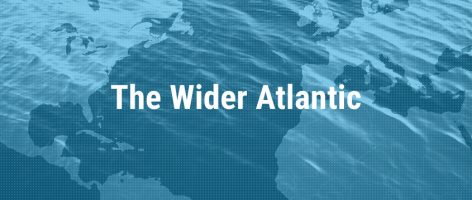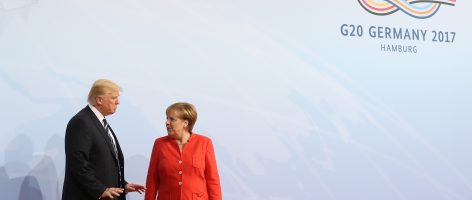
Including Workers’ Voices in the Digital Transformation
With the digital transformation unfolding across the OECD’s wealthy democracies, all eyes are on California. The land of self-driving cars and artificial intelligence, California has captured the imaginations not just …

U.S. trade policy in the age of Trump: What role for Europe in the “New Nationalism”?
One year ago, the American public elected in Donald Trump a president who painted international trade not as a generator of U.S. prosperity and a multiplier of its national interest, …
Democratizing the Economic and Monetary Union
With the Eurozone emerging from years of economic crisis, the reform of the currency union is now in the limelight. After the “election year” in Europe, the reform momentum has …

America’s Four Economic Families
The United States may have two major political parties, but it is becoming clear that it has four economic families: Small government + free trade = Mainstream Republicans Small government …

Voting for the Eurozone on September 24th
The German elections are just over two weeks away on September 24. Chancellor Angela Merkel is nearly certain to be reelected to a fourth term, so the main unknown surrounds …
Recent Authors
AGI provides knowledge, insights, and networks as tools to solve the challenges ahead.
Support Our Work
Andreas Falke, AGSR Fellow
AGI is pleased to welcome Andreas Falke as an AGI/GMF Fellow with the American-German Situation Room in Washington, DC, in September 2017. Prof. Dr. Andreas Falke is the Chair for …

Two Cheers for the House Russia Sanctions
Energy policy is the geoeconomic tool par excellence. Whether it is the OPEC oil embargoes of the 1970s, the subsequent creation of the International Energy Agency by Western consuming nations, …

Germany’s Number 1 Task: Renew the Global Economic Order
The most important contribution the new German Federal Government can make is to support and reform the global economic order that has been responsible for 70 years of peace and …

Neue Neue Ostpolitik
On June 15, the US Senate approved an act to sharply expand sanctions imposed on Russia in retaliation for its intervention in eastern Ukraine and annexation of Crimea in 2014. …

A Tale of Two Communiqués
During Richard Nixon’s historic 1972 visit to China, the U.S. president reportedly asked Premier Zhou Enlai what he thought about the impact of the French Revolution on history, to which …

Will Globalization’s Third Phase Be Like Its First?
During the world’s first phase of globalization before World War I, I had a great-grandfather who was a cigarette manufacturer in Czarist Russia. He traveled regularly to Turkey to purchase …



